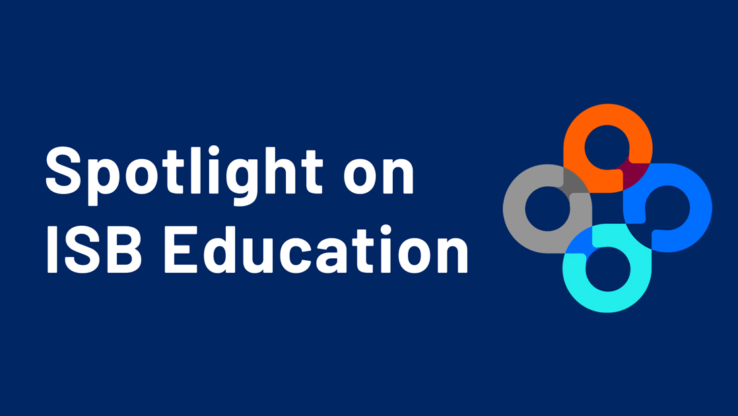Breakthrough T Cell Discovery Has Huge Potential for Engineering Custom Immune Responses
 isbscience.org/news/2024/02/02/breakthrough-t-cell-discovery-has-huge-potential-for-engineering-custom-immune-responses/
isbscience.org/news/2024/02/02/breakthrough-t-cell-discovery-has-huge-potential-for-engineering-custom-immune-responses/UPDATE
On February 1, ISB President Dr. Jim Heath was the featured speaker of our first Research Roundtable event of 2024. In his presentation, Heath delivered a talk, titled “The Future of Cancer Immunotherapy.”
Watch his presentation by clicking play above or by going here. And continue reading below for our original story detailing his work.
ORIGINAL STORY
T cells are soldiers on the front lines of the human immune system. They are responsible for many important roles, including attacking viral- or bacterial-infected cells and certain cancer cells, and immunological memory – remembering the specific pathogens or the cancer signatures that originally trigger T cells.
Until now, understanding how a T cell forms into a specific role, for example a cell-killing (cytotoxic) T cell or memory T cell, has eluded us. In a just-published paper in Cell Reports, ISB researchers made the breakthrough discovery that the genetically encoded T-cell receptor (TCR) sequence that humans develop in early childhood determines a T cell’s function.
“That receptor sequence is the major determinant – not signaling proteins such as cytokines or other blood components,” said Daniel Chen, first author of the paper. “It is that receptor sequence – the proteins on the T cell that bind to foreign antigens – that determines what this cell’s phenotype is, and thus determines what its function is going to be.”
In a human clinical study involving 68 patients, the team explored around 700 T cells that specifically interacted with antigens from either SARS-CoV-2, influenza, or cytomegalovirus.
The potential of this fundamental discovery is promising for developing custom immune responses to specific antigens.
“T-cell receptor-engineered T cell cancer immunotherapies are an emerging treatment for solid tumors. In such therapies, the T cells that comprise the drug are typically engineered to aggressively kill cancer cells. We know that a successful immune response requires a balance of T cell phenotypes, some of which kill tumor cells, but others which can form memory or do other functions,” said ISB President and Professor Dr. Jim Heath, corresponding author of the paper.
“We show that there is basically a card catalog available. If you want to engineer a balanced immune response, you go to that card catalog, you find the particular TCR genes that, when engineered to build the cell therapy, can provide that balanced response,” Heath added.
Importantly, a different “card catalog” is required for different antigens. However, many antigens are immunogenic. This means that for different patients afflicted with the same disease, their T cells will often target the same antigen.
“This is important,” said Chen, “because it means that what we learn for one patient is likely going to be applicable for another.”
This work was funded by the WA State Andy Hill CARE Foundation, by the National Cancer Institute, and by the Parker Institute for Cancer Immunotherapy.






